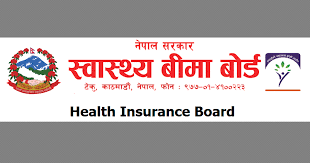KATHMANDU: The recent directive by the Health Insurance Board, enforcing a 10% co-payment for individuals seeking treatment under the health insurance program, has sparked significant concerns and requires closer examination.
The decision, seemingly addressing concerns of beneficiaries influencing doctors for unnecessary health check-ups, introduces financial implications for those in need of medical care. This move contradicts previous assurances of free treatment for insured individuals, where families contributing an annual premium of Rs. 3,500 were promised coverage up to Rs. 100,000. This sudden policy shift raises worries about the affordability of health services, especially for financially constrained families.
Dr. Damodar Barsaula, the Executive Director of the Health Insurance Board, stated that the co-payment system is intended to discourage unnecessary health check-ups and promote responsible use of health services. However, this justification seems insufficient, particularly when considering the government’s failure to fulfill its fundamental responsibility of providing free basic health check-ups to all citizens, as mandated by Article 35 of the Constitution.
The decision to impose a 10% co-payment appears to penalize all beneficiaries, even those genuinely in need of medical attention. Complaints from beneficiaries suggest that people seeking treatment under insurance policies are discouraged by insurance officials and hospital staff.
Exempting primary health centers and hospitals with up to 25 beds from the co-payment rule raises questions about the equitable distribution of healthcare costs. The potential burden on larger hospitals, including federal institutions, due to smaller facilities being exempted, needs further scrutiny.
The statistics provided by the board’s spokesperson, Om Kumari Kandel, regarding the number of enrolled individuals and those actively availing health services under the insurance program, fail to address the underlying issues of this sudden policy change. It is essential to understand the impact on vulnerable groups excluded from the co-payment rule, such as the elderly, impoverished, HIV-positive individuals, and those with complex diseases.
The introduction of a 10% co-payment for health insurance beneficiaries necessitates careful reconsideration. Policymakers should evaluate the potential consequences on healthcare accessibility and affordability, ensuring that the objective of discouraging unnecessary medical procedures does not compromise the fundamental right to health for all citizens.









Comment